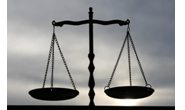Government/Policy

June 27, 2021
Leibowitz on Trade: Virtue Signaling and Trade Policy—Trend or Fad?
Written by Lewis Leibowitz
I’ve noticed an increased focus on international issues reflecting moral and political subjects as opposed to economic ones, although these have been with us for a long time. Economists call this “virtue signaling.” The American Institute for Economic Research (AIER) published an article on the subject a few years ago, defining “virtue signaling” as “the expression of disgust or favor in an attempt to display one’s moral loftiness and superiority of those holding a contrary view.” The article noted that this moral posture is often unaccompanied by any action that might change things; it might trigger a “like” on Facebook, but little more. Since Jan. 20, that appears to be changing.
When the government gets involved in virtue signaling by implementing policies, there can be serious consequences. I’ve noted in previous columns a few issues that might trigger policy responses. For example, there is the moral condemnation of alleged forced labor in Western China involving Muslim Uighurs. U.S. Customs has recently issued “withhold release orders” on imported cotton products from China that might involve forced labor by Uighurs. It might be remembered that forced labor has been involved in cotton production in this country. The Chinese deny this, as well they might. There exists no tribunal that can settle the issue.
Another recent proposal is a tariff on imports (such as steel, cement and fertilizers) whose production abroad involves carbon emissions. The European Union issued a report (discussed last week) to impose new import taxes based on the degree of carbon emissions in production of products. How that is to be measured is still uncertain, at least to me. However, the basic notion that imports should be based on “most favored nation” principles would clearly be lost; if Country A’s steel industry emitted more carbon than Country B’s, the tariff on Country A would be higher.
Translating virtue signaling into trade policy is a developing theme these days. And it’s becoming a widespread practice. “Buy local” is one. “Stop illegal dumping” is another.”
But there’s another side to each of these themes: every policy choice means consequences, both favorable and adverse. Responsible policymaking requires that both the good and the bad consequences be recognized and balanced against each other. Virtue signaling makes this harder, but effective leadership requires it.
The example of a carbon tariff provides a case in point. The virtue of a carbon tariff is easy to see— the EU wants to cut emissions by 55% by 2030 from 1990 levels. Any country that does not take steps to equal that kind of reduction can expect the EU to tax imports from that country produced by carbon-emitting industries. The alternative, environmentalists argue, is “carbon leakage”—industries that must compete against dirtier foreign competitors will be encouraged to migrate overseas to pollute without paying the price for that. The results: job losses at home and no cleaner air to combat global warming.
Trade rules have, since World War II, strongly discouraged GATT and WTO members from charging different tariffs on different countries, instead favoring “most favored nation” or “normal trade relations” standard tariffs on goods from WTO members. The rules also discourage setting tariffs based on the process of manufacture. Instead, tariffs are usually on goods rather than how they are made. The EU proposal would reject that standard in the name of addressing carbon emissions.
The “most favored nation” principle, like most principles, has its exceptions. In antidumping and countervailing duty law, the margin rates and final duties can vary from one country to another and even from one exporter to another. The national security tariffs and quotas vary greatly from one country to another, eliminating all restrictions on some countries and imposing quotas rather than tariffs on others. This practice cannot be said to be consistent with WTO requirements, because the cases have not yet been decided.
So far, the EU has not explained the details of its approach to setting tariffs on imports of carbon-emitting products. The duties might vary based on an analysis of the costs imposed by each country on carbon emissions. That would be very difficult to administer and would necessitate constant revisions. It could also compare the programs on carbon emissions in other countries with those of the EU on an aggregate basis. However it’s done, expect a challenge to the new tariffs if they become effective.
The impact on manufacturers would be substantial. Manufacturers that import products subject to the tariff would have higher costs. If their foreign competitors are not subject to the same tariffs on their end products imported into Europe, jobs are likely to be lost. On the other hand, increased costs will be passed on to consumers, potentially reducing demand.
Democrats in the House of Representatives revealed a similar proposal to the EU’s last week. As with the EU plan, there are few details. It is sure to generate controversy on the same issues as the EU plan.
At the end of the day, people and governments must determine which issues are more important—improving the lives and prosperity of more people and reducing poverty on the one hand or cutting pollution on the other. Almost everyone would agree that both are important. But advancing both at the same time is a genuine challenge.
Virtue signaling is not the best way to balance competing interests because it tends to appeal to emotion rather than rationality. But virtue signaling appears to be in vogue right now. It is important to look past the easy slogans and carefully balance the vital interests of society. Solutions that can foster prosperity while combating climate change would be welcome. But, unfortunately, those who strive to balance these competing issues are in short supply.
Lewis Leibowitz
The Law Office of Lewis E. Leibowitz
1400 16th Street, NW, Suite 350
Washington, D.C. 20036
Phone: (202) 776-1142
Mobile: (202) 250-1551
E-mail: lewis.leibowitz@lellawoffice.com







